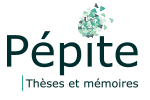Effets de l’anastomose porto-cave temporaire et son rôle dans la prévention du syndrome post-reperfusion au cours de la transplantation hépatique : étude rétrospective monocentrique chez 202 patients appariés
- surgical technique
- vena cava preservation
- anesthetic management
- coarsened exact matching
- Anastomoses portocaves
- Foie -- Transplantation
- Lésions d'ischémie-reperfusion
- Anastomose portocave chirurgicale
- Transplantation hépatique
- Reperfusion
- Langue : Français
- Discipline : Médecine. Chirurgie générale
- Identifiant : 2019LILUM150
- Type de thèse : Doctorat de médecine
- Date de soutenance : 06/06/2019
Résumé en langue originale
Postreperfusion syndrome (PRS) has been associated with severe adverse effects such as acute kidney injury, graft loss or post-operative death. The objective of this study was to estimate the effect of a temporary portocaval shunt (PCS) during liver transplantation on PRS occurrence. Methods: From a monocentric cohort of 340 liver recipients between 2009 and 2016, 70 recipients with PCS were matched with 132 controls without PCS, using coarsened exact matching. Results: In the matched sample, median patient age was 56 years old, median MELD was 11, Child-Pugh score was A in 107 (53%) patients, and main indication for transplantation was hepatocellular carcinoma. PRS occurred in 58 (29%) patients and was associated with an increased risk of early allograft dysfunction and biliary complications. Predictors of PRS were presence of oesophageal varices, use of University of Wisconsin preservation solution, and high MAP prior to reperfusion. In multiple regression, PCS was not associated with PRS (OR [95% CI]: 1.17 [0.53, 2.58], p = 0.701). Conclusions: PCS use during liver transplantation did not prevent PRS occurrence in this matched sample, in which most patients had compensated liver cirrhosis. Whether an effect exists in patients with severe liver disease needs to be further investigated.
Résumé traduit
...
- Directeur(s) de thèse : Boleslawski, Emmanuel
AUTEUR
- Chebaro, Alexandre


